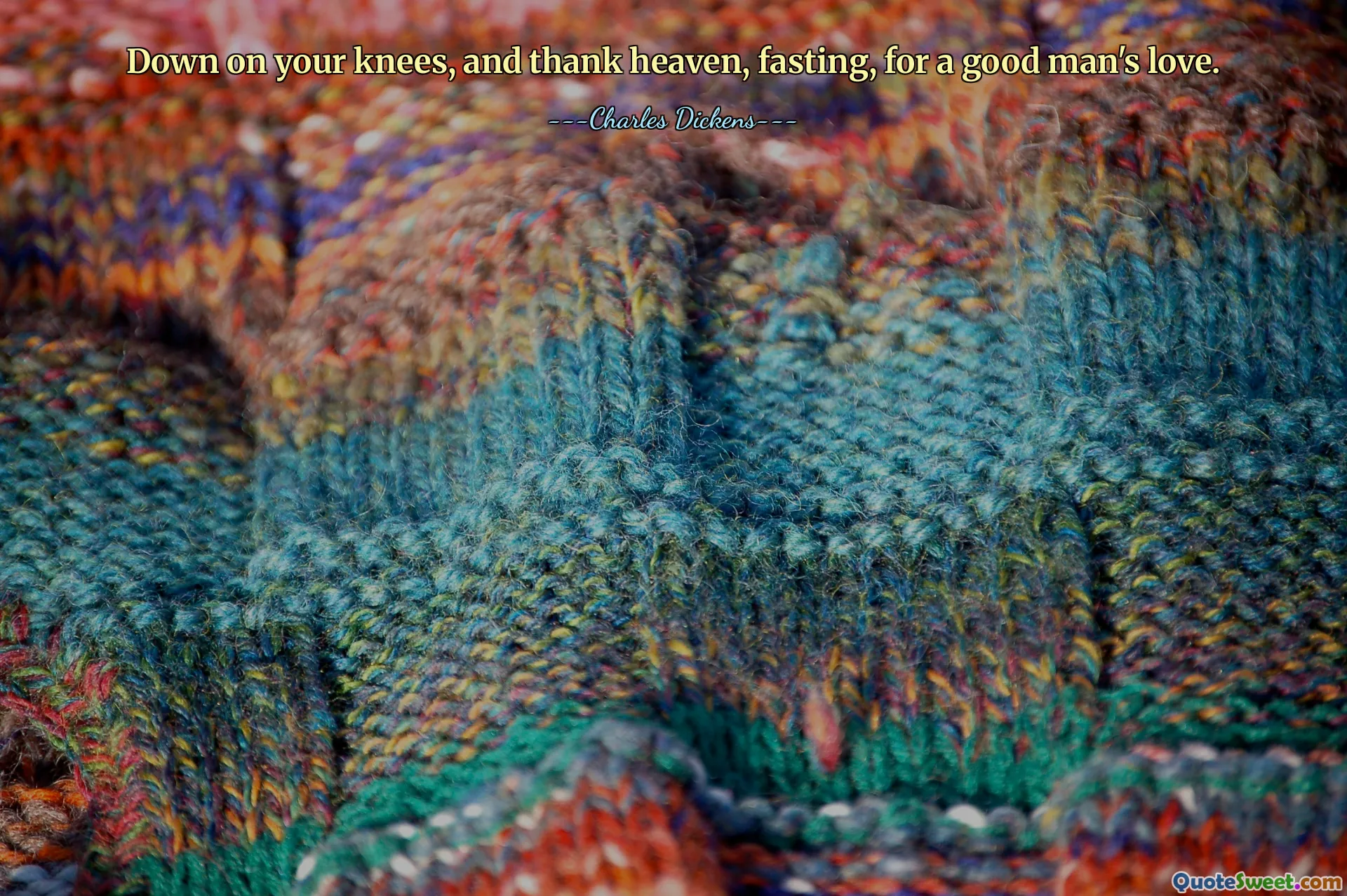
Down on your knees, and thank heaven, fasting, for a good man's love.
This quote by Charles Dickens carries a profound message about gratitude, humility, and recognizing the true value of love in our lives. When Dickens suggests being 'down on your knees,' it exemplifies an act of humility and reverence, emphasizing the importance of appreciating love in a sincere and heartfelt way. Fasting, often associated with sacrifice and reflection, reinforces the idea that genuine love is something to be valued deeply, sometimes at the expense of personal comfort or worldly pleasures. Dickens reminds us to pause and give thanks for love, particularly when it originates from good and noble individuals, highlighting the virtue and moral strength found in sincere affection.
In our busy, modern lives, it's easy to overlook or take for granted the love and goodness present around us. Dickens encourages a mindful acknowledgement of this, urging us to express gratitude confidently and genuinely. The act of 'thank heaven' reflects a spiritual appreciation, suggesting that love is a divine gift worth appreciating with humility. The imagery of being 'down on your knees' also evokes a sense of surrender and acknowledgment that love, often demanding vulnerability, calls for our sincere recognition.
Understanding this quote helps us appreciate the importance of humility and gratitude in fostering meaningful relationships. It reminds us that love, especially from those who are morally upright, is a blessing that warrants our heartfelt thanks. By practicing humility and gratitude, we deepen our connection to others and recognize the divine grace inherent in authentic love. Dickens's words resonate across time, emphasizing that regardless of societal changes, the virtues of appreciation and humility in love remain eternal and vital for a soulful life.











